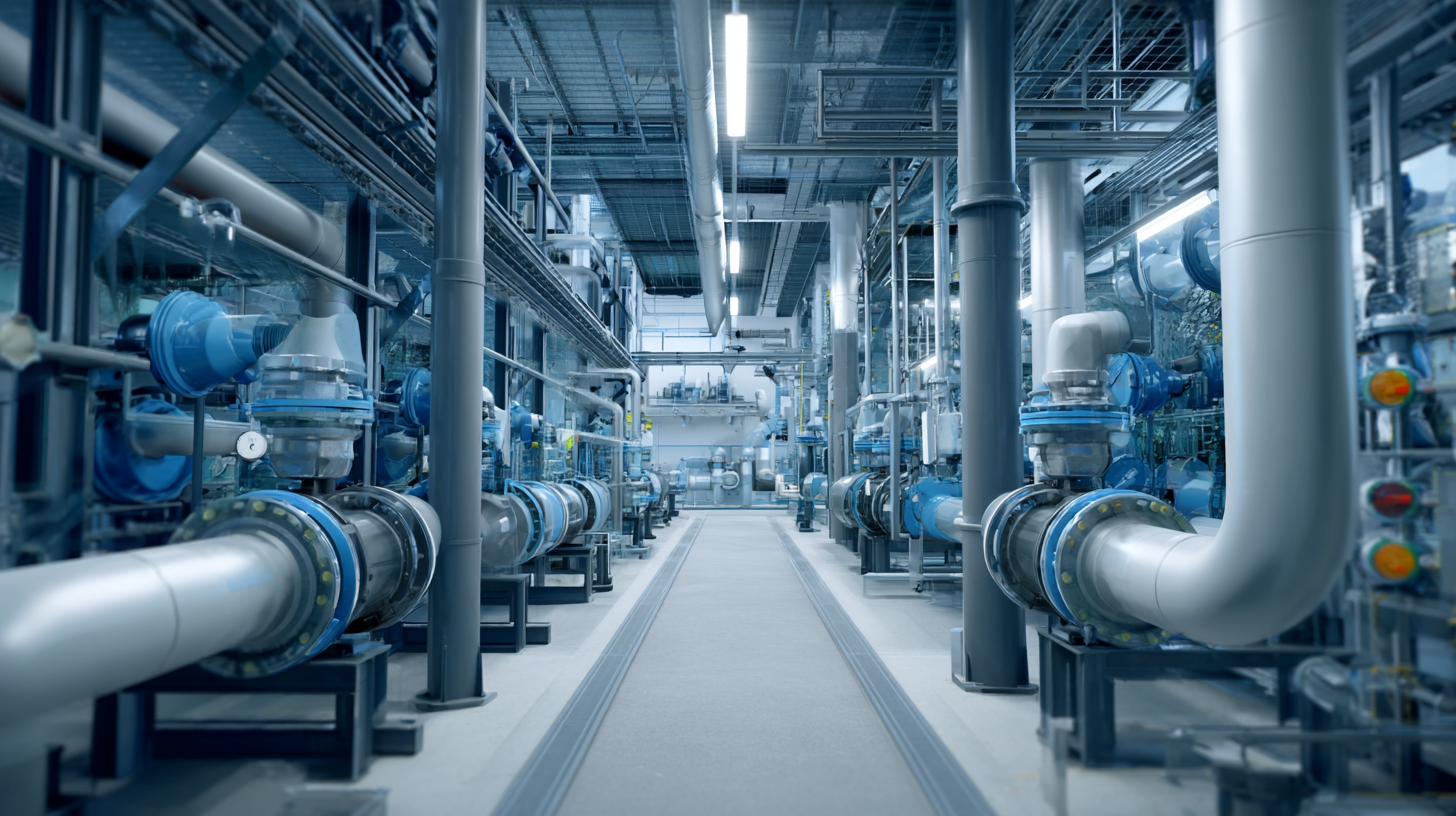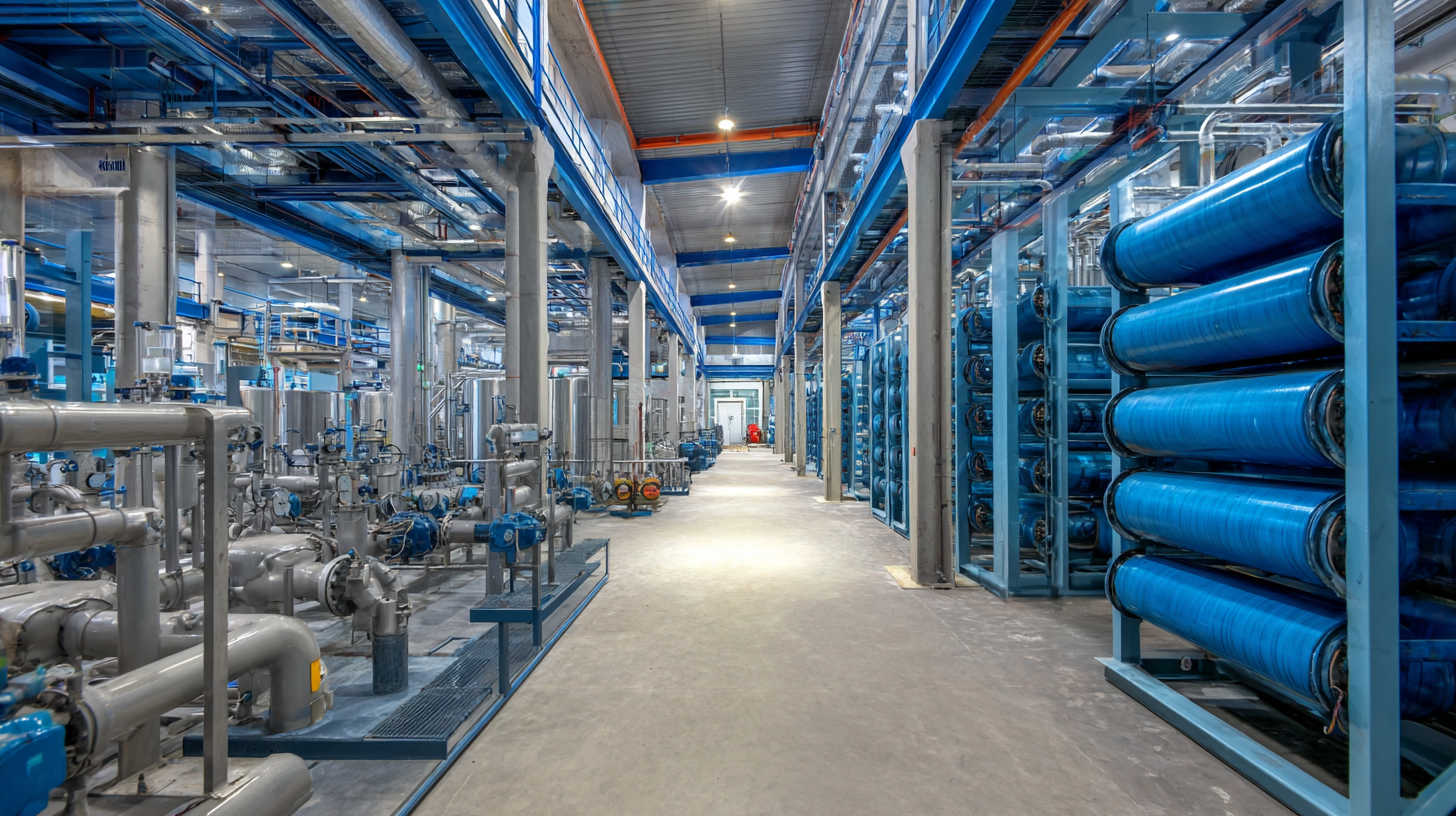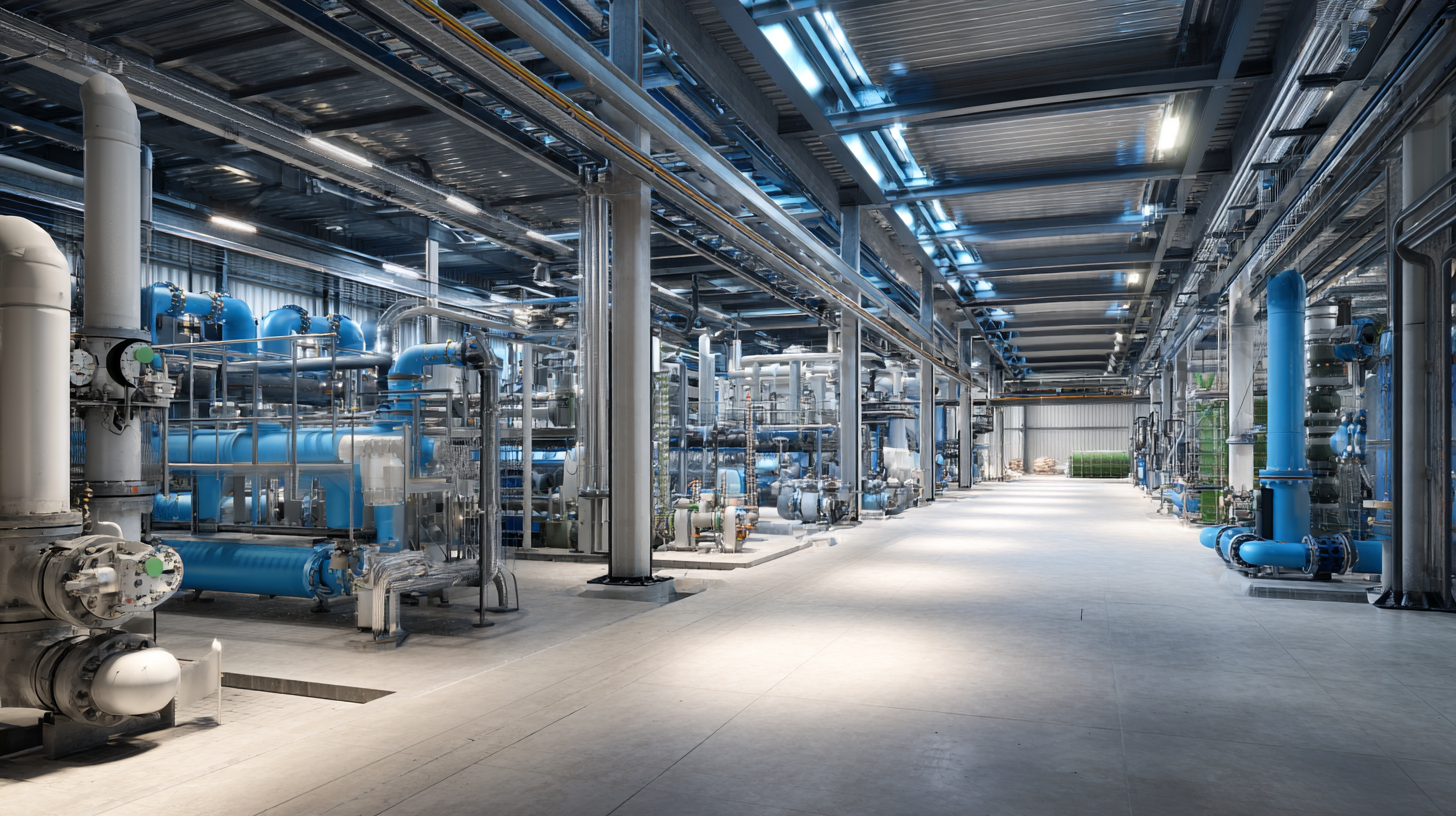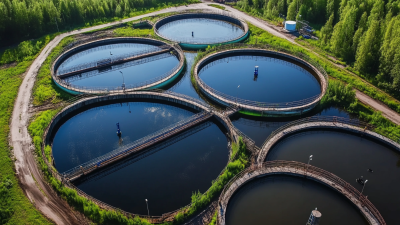The Water Recycling Industry is poised for significant growth, driven by increasing global water scarcity and a heightened focus on sustainable practices. According to the Global Market Insights report, the industry is expected to exceed USD 30 billion by 2026, propelled by advancements in technology and a growing recognition of the critical role of water recycling in resource management.

As urban areas continue to expand, the demand for efficient water solutions has never been more urgent. In fact, the United Nations estimates that by 2025, two-thirds of the world's population could be living under water-stressed conditions, making efficiency in the Water Recycling Industry not just a goal but a necessity.
This presents an unprecedented opportunity for stakeholders to innovate and optimize processes, ensuring that the potential of recycled water is fully realized. Understanding best practices and strategies for maximization will be crucial for those looking to thrive in this dynamic sector.
Identifying key processes for optimal water recycling efficiency involves understanding the various stages of water treatment and recognizing opportunities for improvement. The primary steps in water recycling include
pre-treatment, biological treatment, filtration, and disinfection. Each of these stages has the potential for optimization. For instance, enhancing pre-treatment technologies, such as membrane filtration and sedimentation, can significantly reduce the load on subsequent processes, resulting in lower operational costs and higher efficiency.
Furthermore, the adoption of advanced monitoring and control systems can lead to more precise management of resources and energy consumption during the recycling process. Implementing real-time data analytics can help identify inefficiencies, enabling operators to make informed decisions that enhance overall system performance.
Collaborating with technology providers to incorporate innovative solutions, such as smart sensors and automation, can significantly streamline key processes, minimizing downtime and maximizing throughput in the water recycling industry.
In the water recycling industry, implementing advanced technologies in water treatment systems is crucial for maximizing efficiency and ensuring sustainable water management. According to a report by the National Association of Clean Water Agencies, advanced treatment processes can reduce operational costs by up to 30% while enhancing water quality compliance. With the integration of technologies such as reverse osmosis, membrane bioreactors, and advanced oxidation processes, facilities are not only able to produce high-quality recycled water but also significantly lower their energy consumption.

Tips: Consider adopting automation in your water treatment processes to streamline operations and increase precision in monitoring water quality parameters. This can lead to faster response times and reduced labor costs. Additionally, upgrading to real-time data analytics helps identify inefficiencies in treatment workflows, allowing for data-driven decisions that optimize performance.
Investing in these advanced technologies not only improves efficiency but also supports regulatory compliance in the long run. According to the Water Environment Federation, enhancing treatment processes can directly result in decreased maintenance costs along with improved recovery rates of valuable resources, such as nutrients and energy, from wastewater. This holistic approach positions facilities to adapt better to future challenges in water scarcity and resource management.
In the water recycling industry, developing strategic partnerships is crucial for fostering innovation and resource sharing. Collaborations between private companies, governmental bodies, and research institutions can create a robust ecosystem that promotes the exchange of ideas and technology. By pooling resources, partners can invest in advanced purification technologies and infrastructure improvements that would be unfeasible for a single entity to undertake. Such partnerships can lead to the establishment of pilot projects that test new solutions, benefiting all stakeholders involved.
Moreover, cross-industry alliances can bring diverse expertise to the table. For example, partnering with agricultural sectors can help explore water reuse in irrigation, while collaboration with environmental organizations can enhance sustainability practices. These relationships not only drive efficiency but also enhance public awareness and acceptance of recycled water initiatives. By leveraging the strengths of various stakeholders, the water recycling industry can innovate more rapidly, ultimately leading to cost reductions and improved services for communities reliant on recycled water sources.

In the water recycling industry, empowering and training staff is pivotal for enhancing operational performance. According to a report by the Water Environment Federation, organizations that invest in employee training can improve their process efficiency by up to 30%. Training programs tailored to the specific needs of staff not only improve their technical skills but also foster a culture of innovation and ownership, leading to increased motivation and job satisfaction.
Moreover, the implementation of continuous training initiatives ensures that employees stay updated with the latest technology and best practices. A study by the American Society of Civil Engineers revealed that firms actively engaging in staff development see a significant reduction in operational errors, which can lead to up to $1 million in cost savings annually. By prioritizing training and empowerment, water recycling facilities can create a more competent workforce, ultimately driving greater efficiency and sustainability in their operations.
In the water recycling industry, monitoring and analyzing data are crucial for enhancing overall performance. By implementing advanced data collection systems, facilities can track various parameters such as water quality, flow rates, and treatment effectiveness in real-time. This data-driven approach allows operators to identify inefficiencies and potential issues before they escalate, ensuring smoother operations and better resource management.
Moreover, data analytics empowers decision-makers to optimize processes continuously. By employing predictive analytics, facilities can forecast demand fluctuations and adjust operations accordingly. Trends extracted from historical data can also inform maintenance schedules and equipment upgrades, reducing downtime and operational costs. Ultimately, leveraging data not only improves the efficiency of water recycling processes but also contributes to sustainability efforts by maximizing resource recovery and minimizing waste.
This chart illustrates the monthly water recycling efficiency based on various parameters such as system performance, water quality, and operational uptime over a six-month period.






